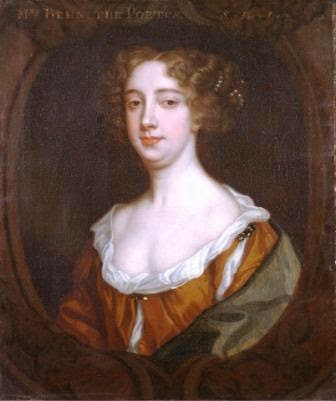
The late eighteenth century uses to be seen as the beginning of modern literature, but it goes without saying that the new novelistic tradition didn’t emerge out of nowhere. Books have been written before and every man of letters added his share to the further development of genres and styles. It’s not much of a surprise that the vast majority of authors were men unless it’s only the impression that we get today because most works of women got lost as time passed and paper decomposed. Poems, plays and narrative products of seventeenth-century writer Aphra Behn survived the centuries, but who was she and how did she live?
The biography of Aphra Behn is full of gaps, uncertainties and inconsistencies. She is supposed to have been born in 1640 as the daughter of a barber called Johnson, to have lived in Surinam in her youth and to have married a merchant called Behn upon her return to England. Working as a spy for the English crown plunged her into debt and so she eventually made her appearance as a playwright to earn her bread – with success. But also her poetry and narrative work left a deep impact in literature, notably her short novel Oroonoko (1688). Until her death in 1689 she penned numerous plays, short novels, stories and poems along with several book translations from French and Latin.
Today Aphra Behn is known to have been the first Englishwoman who called herself proudly a professional writer and Virginia Woolf sang her praises for it.
Click here to read my portrait of this impressive as well as somewhat mysterious English woman writer.

 Log in with Facebook
Log in with Facebook 










